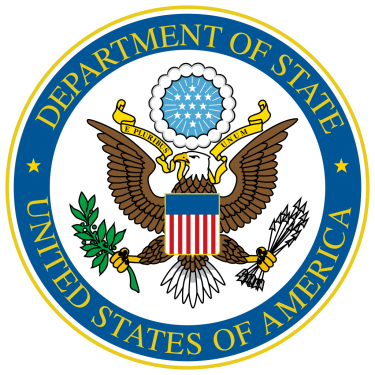The Influence of Technology on the Efficiency of Letters Rogatory Procedures
The Influence of Technology on the Efficiency of Letters Rogatory Procedures
Blog Article
Letters Rogatory Explained: Facilitating Legal Participation Between Countries

Definition of Letters Rogatory
Letters rogatory are formal requests made by a court in one jurisdiction to a court in an additional jurisdiction, looking for support in getting proof or statement for a lawful proceeding. This procedural system is essential in the context of international legislation, where lawful systems may vary, and cross-border collaboration is needed. Letters rogatory promote the event of details that might be essential for settling cases, specifically in circumstances including complex multinational concerns.
Usually, these demands develop in civil, criminal, or administrative issues where a celebration needs evidence that lies outside the territory of the requesting court. The letters function as a method to make sure that the concepts of due process are maintained, allowing courts to access evidence that might or else remain inaccessible due to lawful or geographic obstacles.
The usage of letters rogatory is governed by international treaties, bilateral agreements, or residential regulations, which define the procedures and responsibilities of the courts included. It is very important to keep in mind that the execution of such demands is not guaranteed; they depend on the laws and methods of the jurisdiction receiving the letter. Hence, letters rogatory are a pivotal device for fostering lawful participation and ensuring justice throughout borders.
The Refine of Issuing Letters Rogatory
Issuing letters rogatory entails an organized process that makes sure conformity with both international and residential legal requirements. Originally, the requesting party, normally a court or legal authority, prepares an official demand outlining the nature of the aid looked for, the evidence or details required, and the legal basis for the demand. This paper has to be specific to assist in understanding by the international jurisdiction.

The following step entails transmitting the letters rogatory to the designated international authority. This is commonly done through polite networks or global lawful aid frameworks, ensuring that the request is received and recognized by the foreign court. The foreign court after that refines the request according to its very own lawful procedures, eventually reacting to the asking for celebration with the sought-after details or evidence, thus facilitating international lawful cooperation.
Relevance in International Legislation
The relevance of letters rogatory in international legislation can not be overstated, as they act as a critical mechanism for judicial cooperation throughout boundaries. These official ask for aid in legal matters permit courts in one territory to look for info, proof, or the existence of witnesses from one more jurisdiction, thereby helping with the administration of justice in global cases.
Letters rogatory are especially crucial in the context of globalization, where legal conflicts typically span numerous countries. They enable the collection of evidence that could otherwise be hard to reach, making sure that legal proceedings are educated and reasonable. By promoting partnership in between judicial systems, letters rogatory aid maintain the rule of legislation and promote shared respect among nations.
In addition, the use of letters rogatory shows a commitment to global standards and concepts of teamwork, mirroring the interconnected nature of modern legal techniques. It illustrates the importance of sticking to recognized treatments and treaties, such as the Hague Convention, which offers a structure for these requests - Letters rogatory. Eventually, letters rogatory boost the effectiveness of legal processes, guaranteeing that justice is not hindered by geographical borders
Obstacles and Limitations
Despite their significance, letters rogatory face numerous difficulties and restrictions that can restrain their efficiency. One main concern is the differing lawful structures and procedures across territories, which can result in misunderstandings and delays in the execution of demands. Various nations may have distinctive demands for the legitimacy of letters rogatory, complicating the procedure additionally.
Additionally, the often drawn-out nature of worldwide lawful teamwork can prevent prompt accessibility to proof or witnesses. This hold-up may adversely affect legal process or ongoing investigations, especially in situations needing urgent activity. Moreover, the absence of resources and training in some territories can lead to insufficient handling of requests, resulting in insufficient or inadequate reactions.
Social distinctions and differing perspectives towards legal processes can likewise present significant barriers. Countries with less official legal systems may battle to conform with the step-by-step rigor expected in letters rogatory. Political tensions in between nations can affect the willingness to carry out requests, resulting in a lack of participation their explanation and diminishing the utility of this device in international legislation. These difficulties require continuous dialogue and reform to improve the effectiveness of letters rogatory in lawful participation.
Study and Instances

Conversely, obstacles can emerge, as seen in an instance including a European nation seeking evidence in a continuous criminal matter from a non-EU country - Letters rogatory. The process was delayed because of bureaucratic hurdles and differing lawful criteria, eventually impeding the investigation
These examples highlight that while letters rogatory can assist in global collaboration and speed up legal proceedings, they also highlight the demand for clear communication and understanding of legal frameworks between nations. Such situation researches emphasize the importance of refining this device to boost effectiveness and efficiency in global lawful matters.
Verdict
In summary, letters rogatory act as an essential mechanism for facilitating lawful teamwork in between nations, ensuring the collection of proof and testament throughout jurisdictions. Their value in global regulation can not be Get More Info overemphasized, as they advertise due process and improve the performance of cross-border lawful proceedings. Obstacles such as differing lawful structures and political tensions may hinder their effectiveness. Continued initiatives to boost the procedure and enhance are crucial for promoting stronger international judicial collaboration.
Letters rogatory are official requests made by a court in one territory to a court in one more jurisdiction, seeking help in acquiring evidence or statement for a legal case. The asking for party, usually a court or legal authority, prepares an official demand detailing the nature of the support looked for, the proof or information needed, and the legal basis for the request. The foreign court then refines the request according to its own legal procedures, ultimately responding to the requesting party with the sought-after information or evidence, hence assisting in global lawful cooperation.
Furthermore, home the use of letters rogatory demonstrates a dedication to international norms and principles of participation, reflecting the interconnected nature of modern legal methods.International lawful collaboration with letters rogatory is not without its real-world ramifications, as illustrated by different situation studies that highlight both challenges and successes.
Report this page